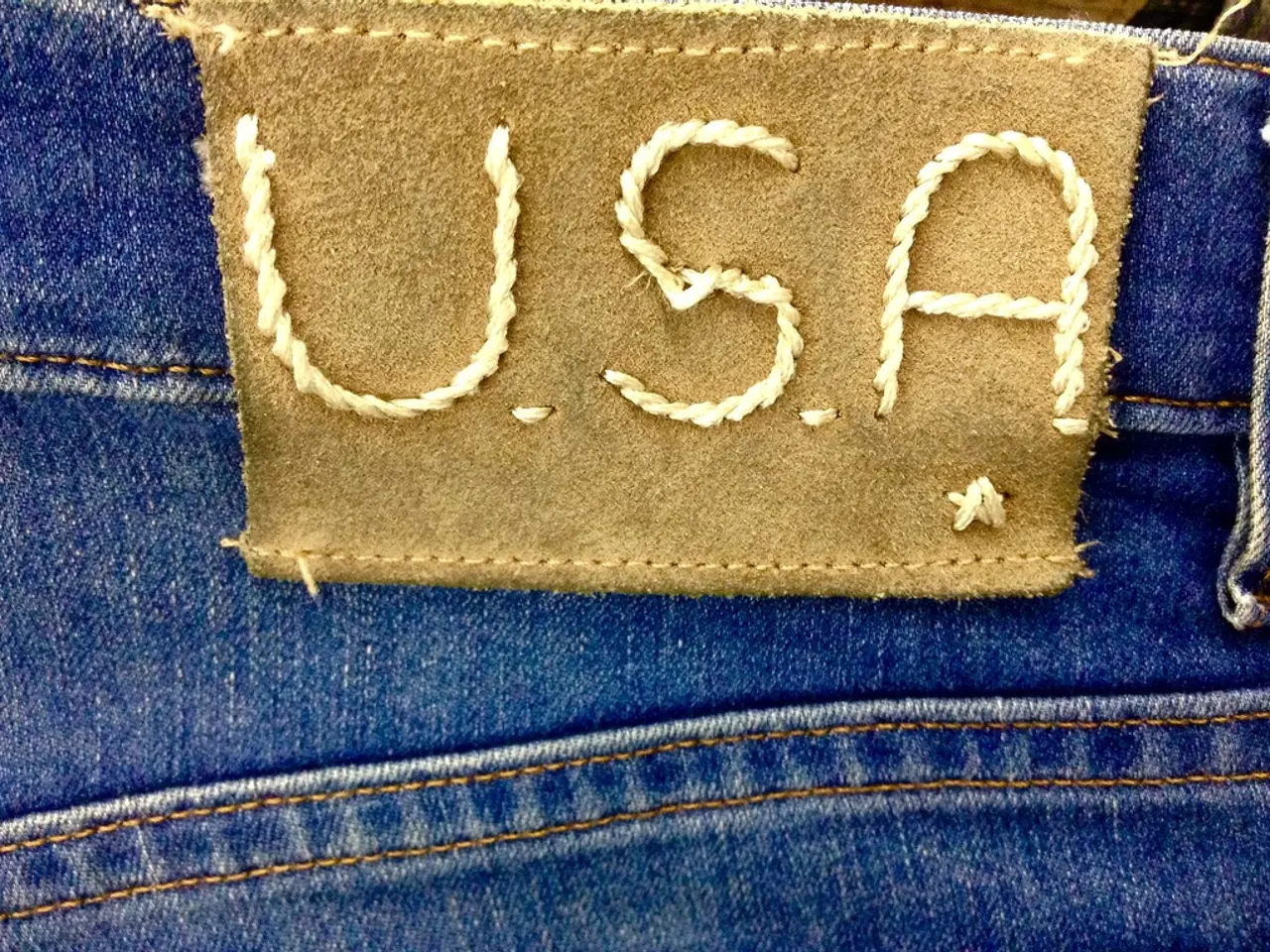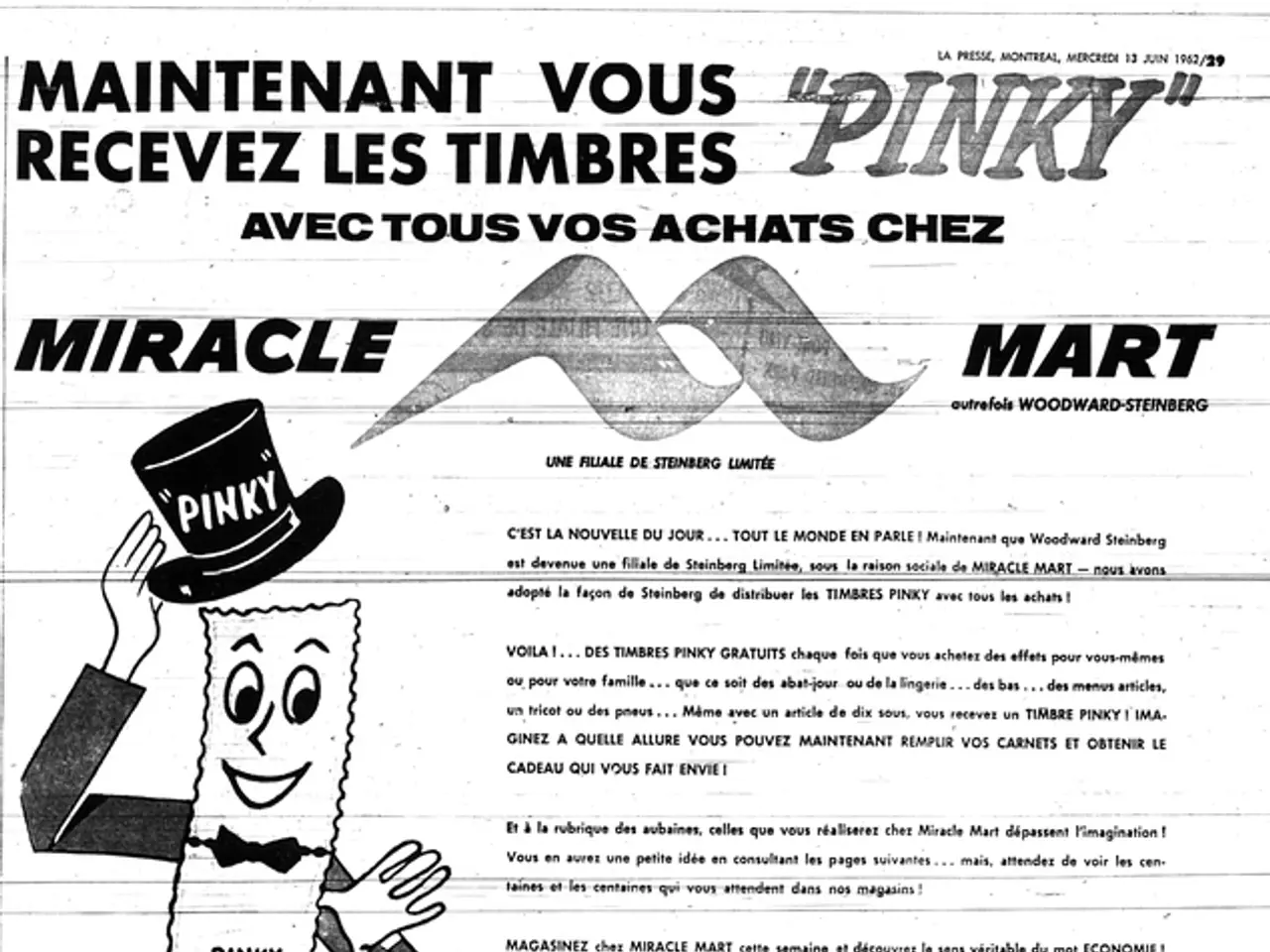Controversial Sydney Sweeney ads ambiguously defended by American Eagle, indicating a bold stance in the public eye
In a move that has sparked intense controversy, American Eagle has found itself at the centre of a heated debate over beauty standards, race, and political identity. The fashion retailer's recent ad campaign featuring actor Sydney Sweeney has quickly become a focal point in ongoing culture wars.
The messaging in the campaign, which focuses on genes and jeans, has been criticised by some as echoing eugenics, a discredited ideology. This has raised concerns about its implications and departure from the brand's prior commitments to inclusivity.
The controversy surrounding the campaign has intensified, with former President Trump praising both Sweeney and American Eagle as representing anti-woke, Republican-aligned values. This endorsement has sparked meme-driven endorsements from other right-wing figures, further entangling the brand in the culture war.
American Eagle's initial response to the backlash did not include an apology or acknowledgement of how many people interpreted the ads. Instead, the brand defended its campaign, stating that it is about the jeans and Sweeney's story. However, experts such as T Smith, a postdoctoral fellow in racial politics at Johns Hopkins University's Krieger School of Arts & Sciences, believe that American Eagle's response "actively undermines the idea that there was anything harmful or worthy of critique in the first place."
Smith emphasizes that American Eagle's refusal to address the racist implications of their campaign "normalizes and reifies white supremacist narratives." Others, such as Tabitha Bonilla, an associate professor of political science and human development and social policy at Northwestern University, believe that American Eagle "more or less brushed the criticism off rather than directly address it or let those with negative reactions know that they have been heard."
The backlash and the brand's response are seen as emblematic of how brands today navigate politically charged consumer environments. Brands are "no longer afraid to align themselves, whether overtly or tacitly, with exclusionary and harmful ideologies because doing so sustains existing power structures and appeals to a particular segment of consumers."
Some Instagram users have celebrated American Eagle's unapologetic tone, saying it indicates the end of the "woke era." However, others view it as a "stabilizing force for a capitalist, white supremacist, and patriarchal order."
As the debate continues, it is clear that the Sweeney campaign has shown how quickly brand campaigns can take on political weight, with consumer perceptions increasingly framing corporate messaging within partisan cultural conflicts. This case illustrates the challenge for brands in balancing identity, representation, and political perception in contemporary America.
[1] Source: Kara Hauck, senior vice president at Sable Strategy, as reported by HuffPost.
- The escalating controversy over American Eagle's ad campaign, starring synonymous with the ongoing debate about beauty standards, race, and political identity.
- The heated discussion around the campaign has expanded beyond the realm of politics, reaching social media platforms where both supporters and critics are expressing their opinions through memes and conversation threads, reflecting the intersection of lifestyle, entertainment, and pop-culture.
- Interestingly, the polarizing influence of the campaign has caught the attention of notable figures such as former President Trump, demonstrating the potential impact of celebrities in shaping public opinions and consumer behaviors.
- The debacle surrounding American Eagle's ad campaign highlights the growing complexity for brands in navigating the interwoven landscapes of science, politics, and social media, where each decision can have far-reaching consequences on a brand's reputation and consumer loyalty.




